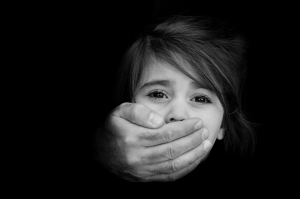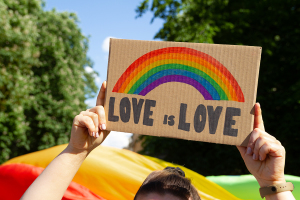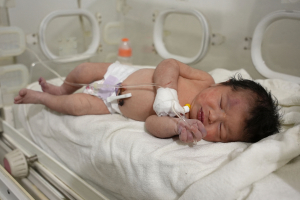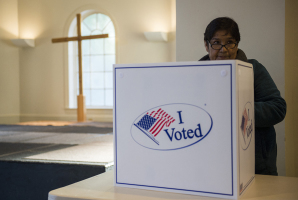Why most Anglican clergy now approve gay marriage — and what this means for the future of the church
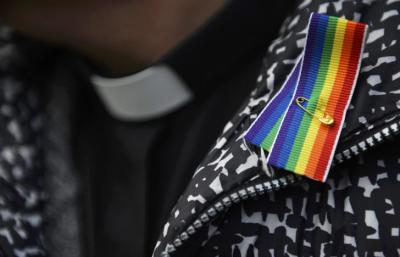
A recent poll conducted by The Times of London indicates that a majority of Church of England clergy now favor gay marriage. The figures (53.4% in favor, 36.5% opposed) show a significant shift from 2014. Back then, in the aftermath of the legalization of gay civil marriage in the U.K., only 39% were in favor and 51% were opposed. There are numerous lessons here.
First, the old battle lines between conservative and liberal Christians have changed. In the past, it was the affirmation or denial of the supernatural claims of the Bible, supremely that of Jesus’s bodily resurrection, that divided churches. Today, it is questions of morality, specifically sexual morality, that are the points of contention. And these are of more significance for the broader life of the church within society. To affirm the resurrection might have made you look like a benighted fool, but societies generally tolerate benighted fools. To oppose our current Western cultural regime, where sexual identity is key to personal value, is to deny the humanity of fellow citizens. The world sees that as a deeply immoral act, and not one that will likely be tolerated forever. Christians need to understand that.
This is not an excuse for abandoning biblical teaching on kind words turning away wrath or on blessing those who curse us. But it is to say that we should expect suffering, not op-eds in the Washington Post, to be our reward.
And that brings us to the second lesson. The clergy’s shift on this issue might well be motivated by pastoral intuitions to affirm people. It is a caring vocation and few, one hopes, enter it with a view to hurting others. Kindness is the order of the day. Ironically, however, this shift buys the immediate possibility of affirmation at huge long-term cost.
One reason for this is that gay marriage does not simply involve a minor expansion of the traditional concept. There was a time when gay writers such as Andrew Sullivan argued that allowing same-sex marriages would simply permit gay people to be part of a conservative institution. It is now clear that gay marriage did not merely expand the set of those considered to be married, but fundamentally evacuated marriage of meaning — or, more accurately, exposed the fact that it had already been fundamentally evacuated of meaning by the ready acceptance of no-fault divorce. It is no longer a unique relationship whose stability is important for its normative ends, but little more than a sentimental bond that only has to last for as long as it meets the emotional needs of the parties involved.
As to traditional marriage, the Anglican Book of Common Prayer summarizes its purposes rather beautifully:
First, It was ordained for the procreation of children, to be brought up in the fear and nurture of the Lord, and to the praise of his holy Name. Secondly, It was ordained for a remedy against sin, and to avoid fornication; that such persons as have not the gift of continency might marry, and keep themselves undefiled members of Christ's body. Thirdly, It was ordained for the mutual society, help, and comfort, that the one ought to have of the other, both in prosperity and adversity. Into which holy estate these two persons present come now to be joined.
A majority of Anglican clergy apparently do not believe in the first purpose anymore, for gay marriages by definition produce no children. Nor do they believe in the second. They clearly do not regard the body — the sexed body — nor the use of its sexual organs as having any intrinsic moral status. And so “marriage” becomes just an intense form of friendship. Ironic that Anglican clergy are abandoning one of the best liturgical statements of what marriage actually is. Indeed, it is not that the clergy now believe in gay marriage; rather, it is that they no longer believe in marriage at all. It is neither pastoral nor caring to deny the moral significance of the sexed human body, nor to participate in the further demolition of an institution whose purpose is to provide children with a loving and stable environment.
Nor does this change apply only to marriage. Once the sex differences at the heart of marriage are dismissed as irrelevant, then a basic change has taken place in what we understand human beings to be. Even though the L, the G, and the B in the LGBTQ alliance are philosophically at odds with the T and the Q in the importance they ascribe to bodily sex differences, in fact, they have already surrendered key ground by denying the significance of the distinctions between male and female physiology. It is a bait and switch: Biology is irrelevant for sexual activity but of absolute importance. There seems little reason to hope that the majority of Church of England priests, having now apparently abandoned their church’s traditional teaching on marriage, will find any compelling reason not to do the same on the question of what a woman is.
The last sad irony is that the clergy's acceptance of gay marriage will ultimately achieve nothing more than the acceleration of the death of the Church of England. The world does not want the church’s approval. It has managed very well without that for many years and will continue to do so. What the world wants is the church’s capitulation. And however one cares to dress up these latest findings — as pastorally sensitive, as keeping up with the times, as affirming the marginalized — they represent the latest fulfillment of that desire.
Originally published at First Things.
Carl R. Trueman is a professor of biblical and religious studies at Grove City College. He is an esteemed church historian and previously served as the William E. Simon Fellow in Religion and Public Life at Princeton University. Trueman has authored or edited more than a dozen books, including The Rise and Triumpth of the Modern Self, The Creedal Imperative, Luther on the Christian Life, and Histories and Fallacies.
















